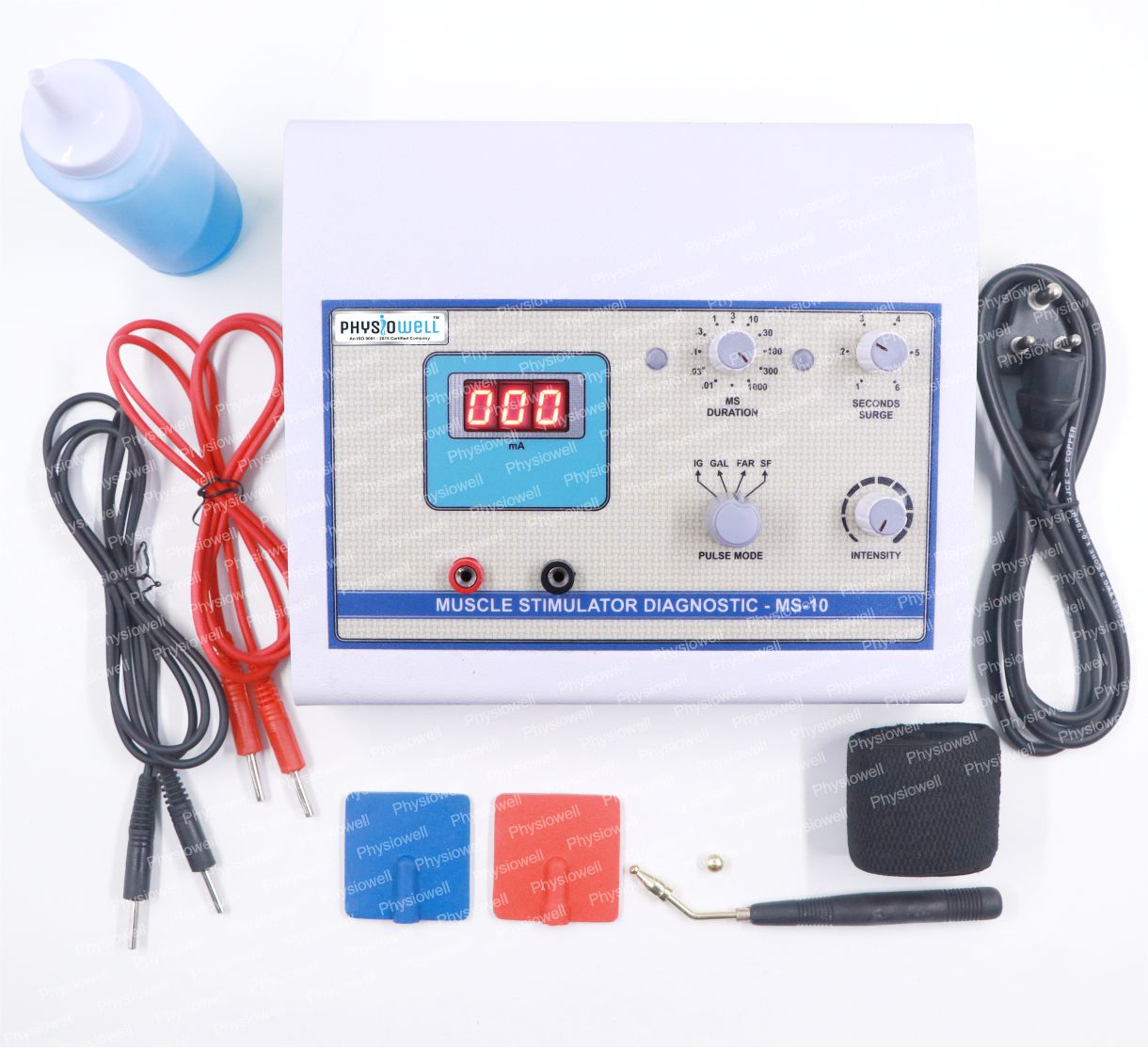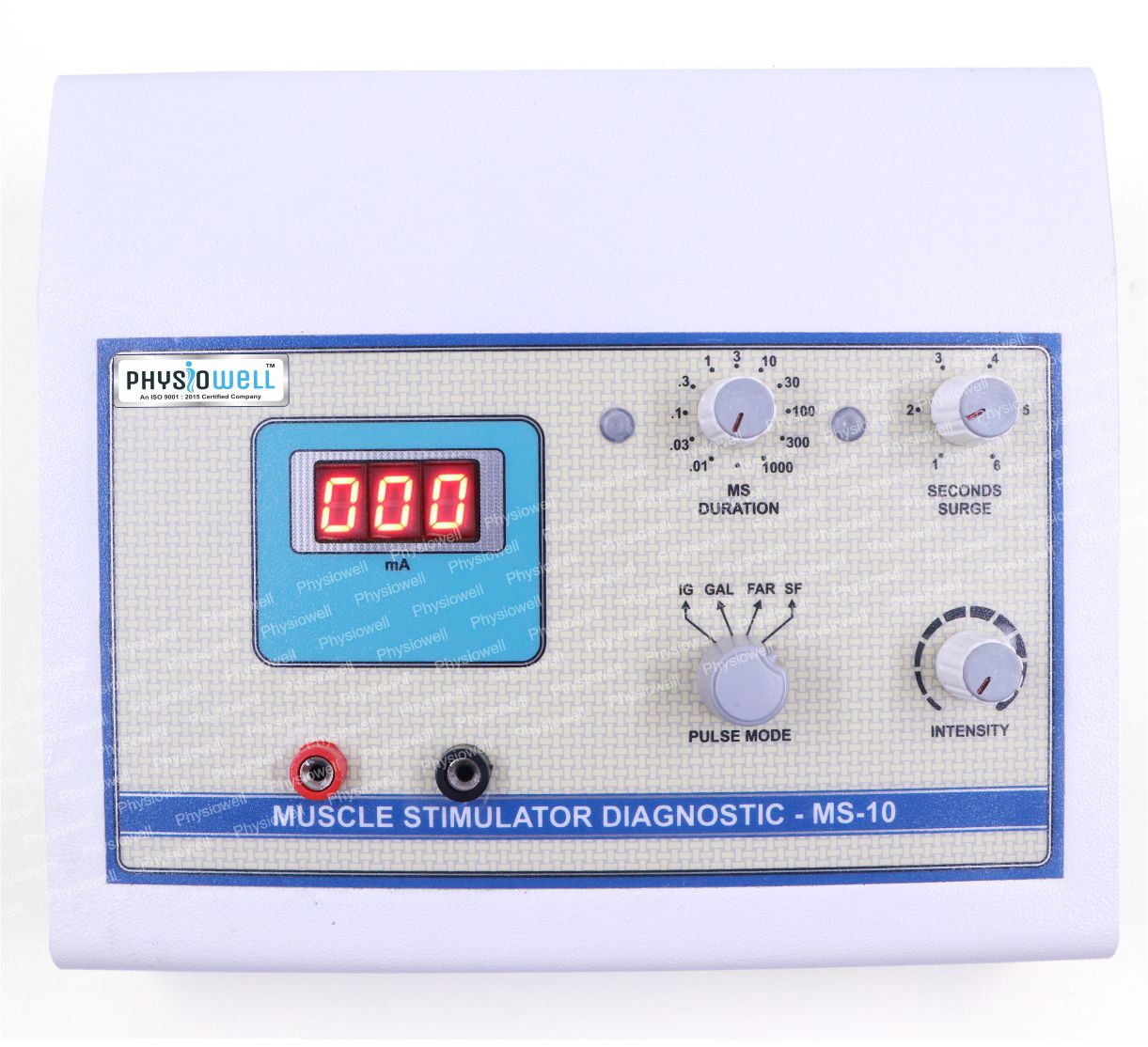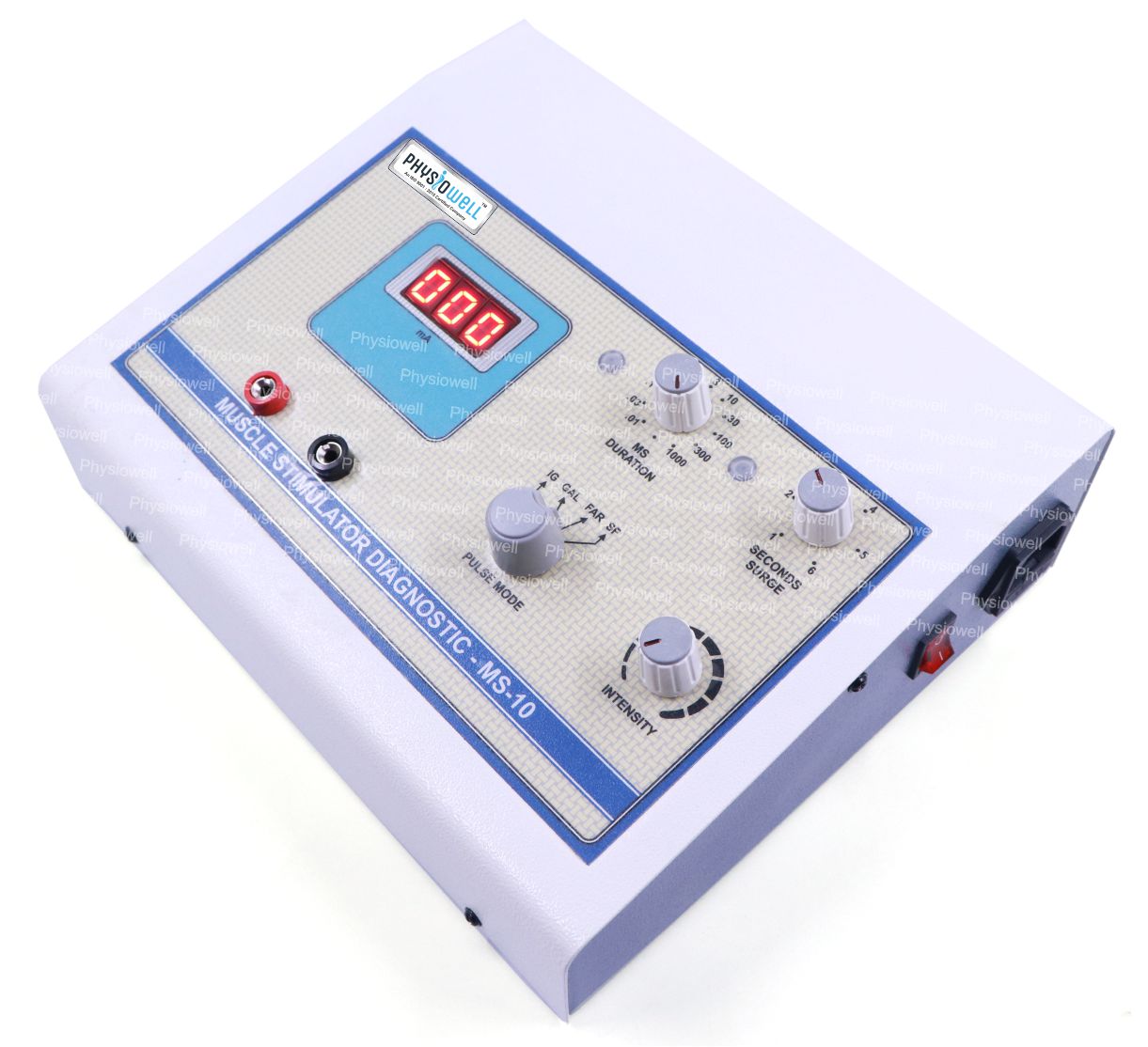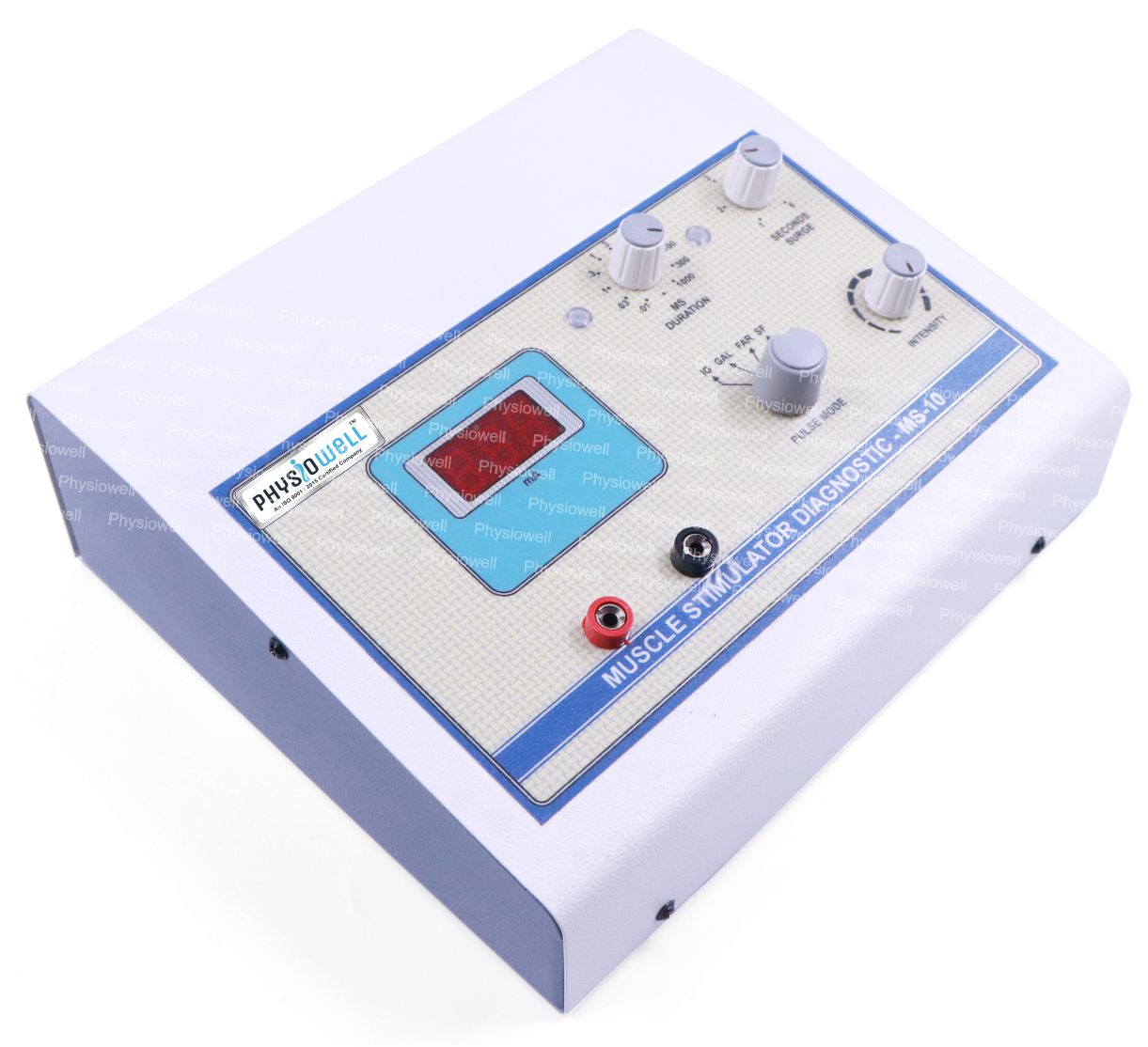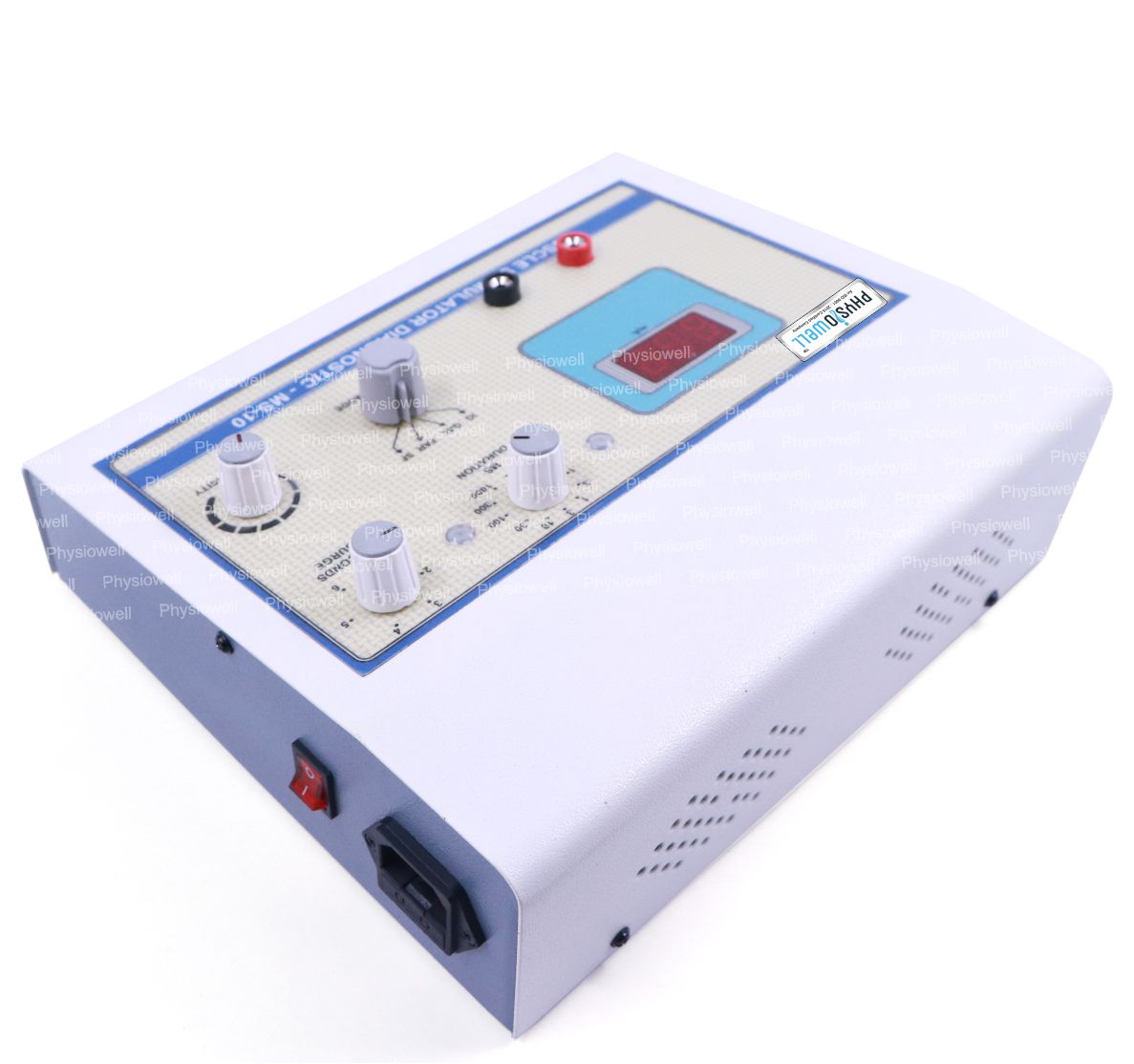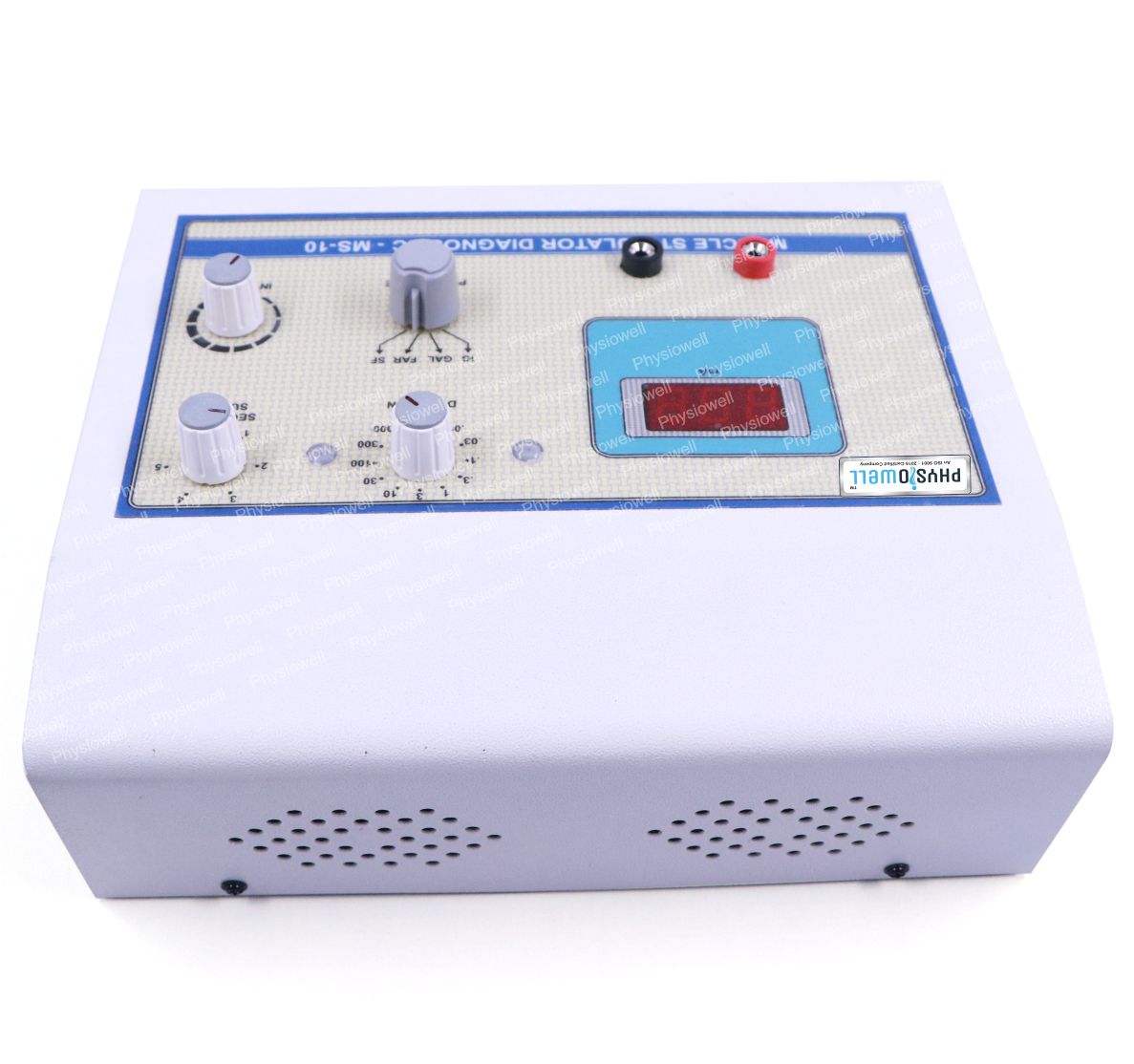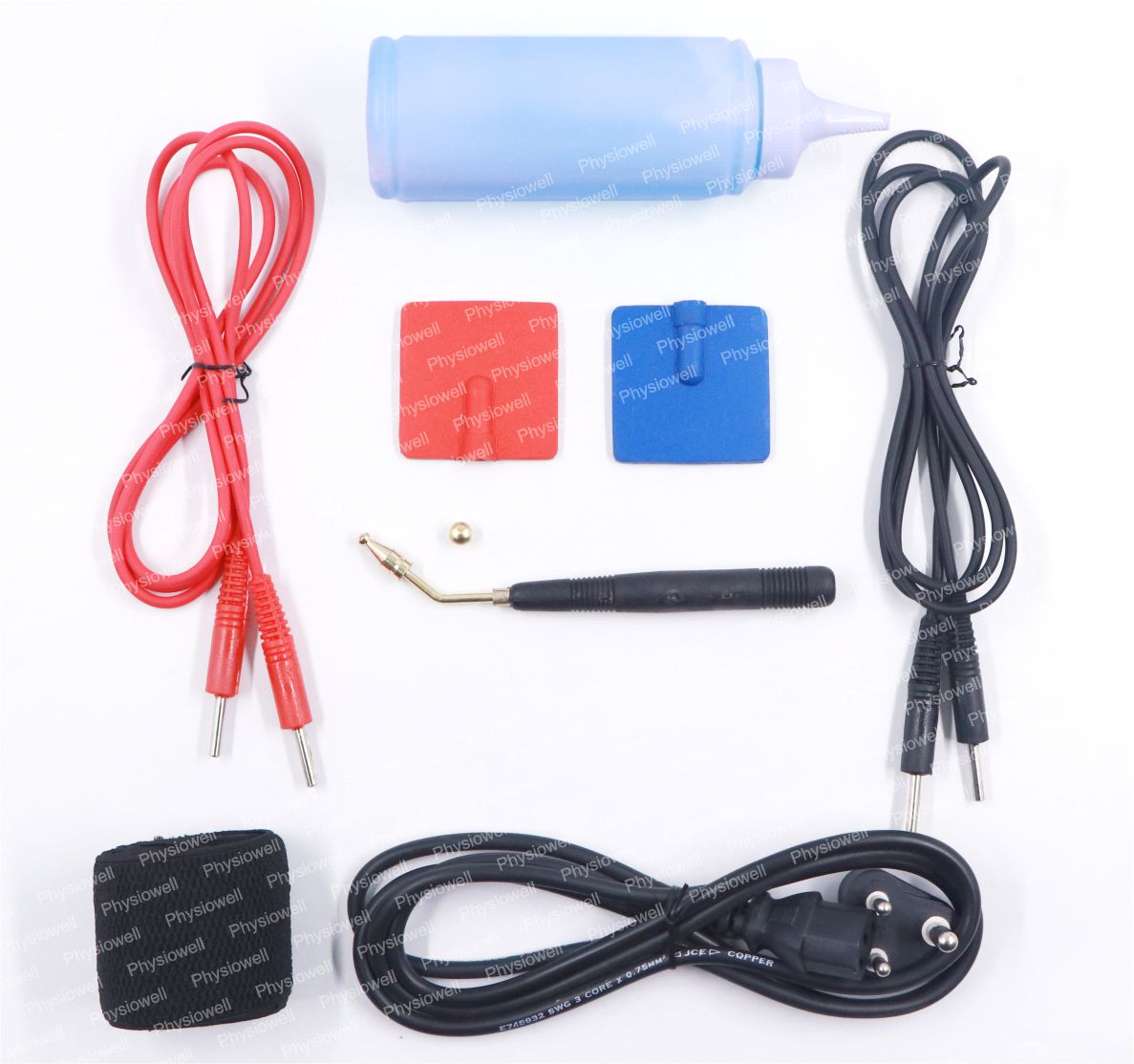Physiowell
Muscle Stimulator Diagnostic
Muscle Stimulator Diagnostic
Couldn't load pickup availability
PHYSIOWELL MS 10 DIAGNOSTIC 2 PIN

PHYSIOWELL MS 10 DIAGNOSTIC 2 PIN
The primary purpose of e-stim therapy is to simulate what happens in the body when you voluntarily contract and release a muscle many times in a row. This process strengthens and repairs tissue, particularly muscles which have become shortened, weakened, or atrophied due to injury or disease. For example:
- If you’ve torn an Achilles tendon, the muscles in your calf and foot may become atrophied from wearing a boot to immobilize the ankle, or from changing your gait to favor the injured ankle.
- If you have a shoulder injury (e.g., a rotator cuff tear or impingement), resting, immobilizing, or favoring the shoulder may cause the muscles in and around that shoulder to weaken.
- If you have neuromuscular dysfunction or a neuromuscular disorder (such as muscular dystrophy), muscles throughout the body may weaken progressively; e-stim can help to slow this progression and improve motor control.
E-stim can also be used by athletes as a muscle conditioning or recovery tool. Some studies have indicated that e-stim can be targeted to create contractions in different types of muscle fibers, allowing athletes (with the guidance and help of professional sports therapists) to train injured or weakened muscles for particular functions and responses. For example, a long-distance runner might use e-stim therapy as a complementary technique to train muscle fibers to resist fatigue.
PHYSIOWELL MS 10 DIAGNOSTIC 2 PIN

PHYSIOWELL MS 10 DIAGNOSTIC 2 PIN
How Exactly Does E-stim Work?
EMS therapy mimics the action potential that comes from the central nervous system. Action potential is what we call it when a neuron (cell in the nervous system) transmits information (electrical impulses) along an axon (the thread-like conduit leading away from the neuron body, toward other cells). When these impulses pass a threshold, the action potential is fired and something happens. In this case, that something is a muscle contraction. EMS therapy creates steady electric impulses that stimulate muscle contractions--many of them over a sustained therapy session. This repetitive contracting and relaxing of the muscle has the effect of:
- Increasing circulation (blood flow) to the affected tissue area, which helps in repair.
- improving strength by flexing and working weakened muscles.
- slowing the process of muscle atrophy by strengthening weakened or unused muscles.
- adapting (training or “educating”) muscle fibers to certain patterns of response (e.g., contracts the fibers that are responsible for force, which results in building strength).
PHYSIOWELL MS 10 DIAGNOSTIC 2 PIN

NECK PAIN
Electrical Muscle Stimulation (EMS) is a popular treatment for back pain, neck pain, muscle tightness, and muscle spasms. EMS technology delivers effective, affordable pain relief that many people also find very soothing. Electrotherapy has shown promising results for those who suffer from musculoskeletal disorders that cause neck and back pain.

KNEE PAIN
Doctors use electrical muscle stimulation to help treat pain and heal injured knee or painful, weak, or diseased muscles. The electrical currents may help improve blood flow and stimulate the muscle fibers or nerves.

BACK PAIN
Electrical Muscle Stimulation (EMS) is a popular treatment for back pain, neck pain, muscle tightness, and muscle spasms. EMS technology delivers effective, affordable pain relief that many people also find very soothing. Electrotherapy has shown promising results for those who suffer from musculoskeletal disorders that cause neck and back pain.

ELBOW & ARM PAIN
Doctors use electrical muscle stimulation to help treat elbow pain and heal injured, weak, or diseased muscles. The electrical currents may help improve blood flow and stimulate the muscle fibers or nerves.
PHYSIOWELL MS 10 DIAGNOSTIC 2 PIN

PHYSIOWELL MS 10 DIAGNOSTIC 2 PIN
Why E-Stim Is Used ?
Electrical stimulation is used for many reasons in physical therapy. It can be used to:
- Provide medication for inflammation
- Improve muscles that are weak or not functioning correctly
- Help decrease pain or spasms
If you are experiencing pain, spasms, inflammation, or muscle weakness, your physical therapist may use this treatment to help you.
Some of the medical conditions you can treat with e-stim include:
- Low back pain
- Post-surgical pain
- Muscle weakness or poor motor control
- Joint Pain
- Muscular Pain
PHYSIOWELL MS 10 DIAGNOSTIC 2 PIN

PHYSIOWELL MS 10 DIAGNOSTIC 2 PIN
How do EMS Machines Work?
EMS machines work by delivering electrical impulses that cause muscles to contract.
One theory suggests that EMS machines enhance muscle strength through muscle fiber recruitment. Only 30% of muscle fibers are activated during maximum muscle contraction, while 70% remain dormant. EMS can electrically stimulate these dormant fibers, improving their strength and producing more substantial and resilient muscles. Another theory proposes that EMS machines can enhance nerve conduction rates. It usually takes thousands of repetitions for the brain to quickly learn how to send messages to muscles via the fastest nerve pathways. EMS machines provide repeated contractions, speeding up this learning process and promoting the recruitment of nerve pathways to strengthen the muscles. Using an EMS machine under the guidance of qualified professionals, such as physiotherapists experienced in EMS muscle retraining, is highly recommended. An EMS machine can be a valuable addition to your muscle-strengthening routine with proper usage and guidance.
Benefits of Using an EMS Machine
EMS machines offer several potential benefits, including:-
- Strengthening weak muscles: EMS can target specific muscle groups and improve their strength.
- Improving muscle endurance: EMS may enhance muscle endurance by providing an intense workout to the targeted muscle groups.
- Aiding in injury rehabilitation: EMS may assist in muscle recovery and rehabilitation after an injury
Share
